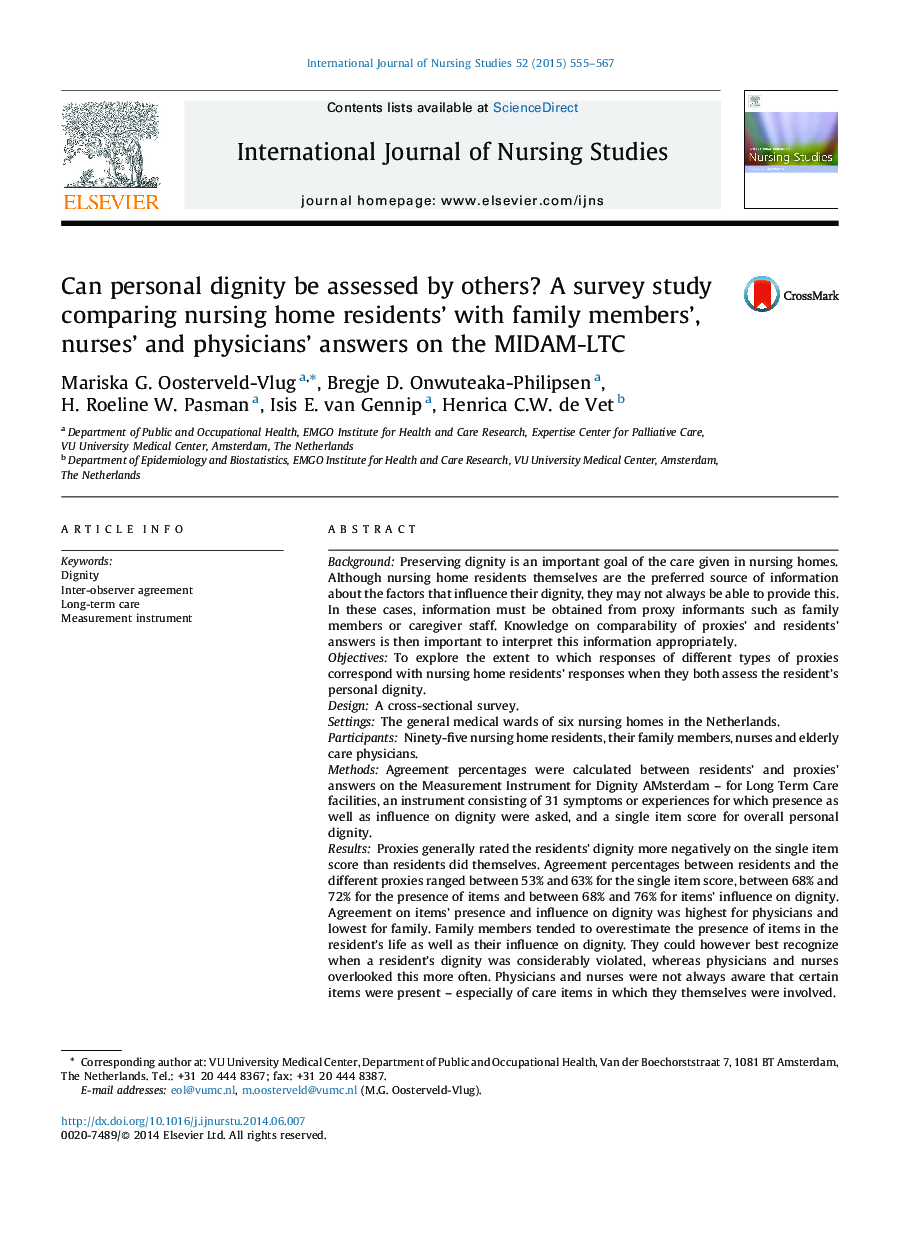| کد مقاله | کد نشریه | سال انتشار | مقاله انگلیسی | نسخه تمام متن |
|---|---|---|---|---|
| 1076330 | 1486527 | 2015 | 13 صفحه PDF | دانلود رایگان |

BackgroundPreserving dignity is an important goal of the care given in nursing homes. Although nursing home residents themselves are the preferred source of information about the factors that influence their dignity, they may not always be able to provide this. In these cases, information must be obtained from proxy informants such as family members or caregiver staff. Knowledge on comparability of proxies’ and residents’ answers is then important to interpret this information appropriately.ObjectivesTo explore the extent to which responses of different types of proxies correspond with nursing home residents’ responses when they both assess the resident's personal dignity.DesignA cross-sectional survey.SettingsThe general medical wards of six nursing homes in the Netherlands.ParticipantsNinety-five nursing home residents, their family members, nurses and elderly care physicians.MethodsAgreement percentages were calculated between residents’ and proxies’ answers on the Measurement Instrument for Dignity AMsterdam – for Long Term Care facilities, an instrument consisting of 31 symptoms or experiences for which presence as well as influence on dignity were asked, and a single item score for overall personal dignity.ResultsProxies generally rated the residents’ dignity more negatively on the single item score than residents did themselves. Agreement percentages between residents and the different proxies ranged between 53% and 63% for the single item score, between 68% and 72% for the presence of items and between 68% and 76% for items’ influence on dignity. Agreement on items’ presence and influence on dignity was highest for physicians and lowest for family. Family members tended to overestimate the presence of items in the resident's life as well as their influence on dignity. They could however best recognize when a resident's dignity was considerably violated, whereas physicians and nurses overlooked this more often. Physicians and nurses were not always aware that certain items were present – especially of care items in which they themselves were involved.ConclusionReports from proxy-informants cannot simply be substituted for nursing home residents’ reports of personal dignity. However, if residents are not able to provide information themselves, there can still be value in proxy response on dignity if results are interpreted in light of the patterns of deviation observed in this study.
Journal: International Journal of Nursing Studies - Volume 52, Issue 2, February 2015, Pages 555–567